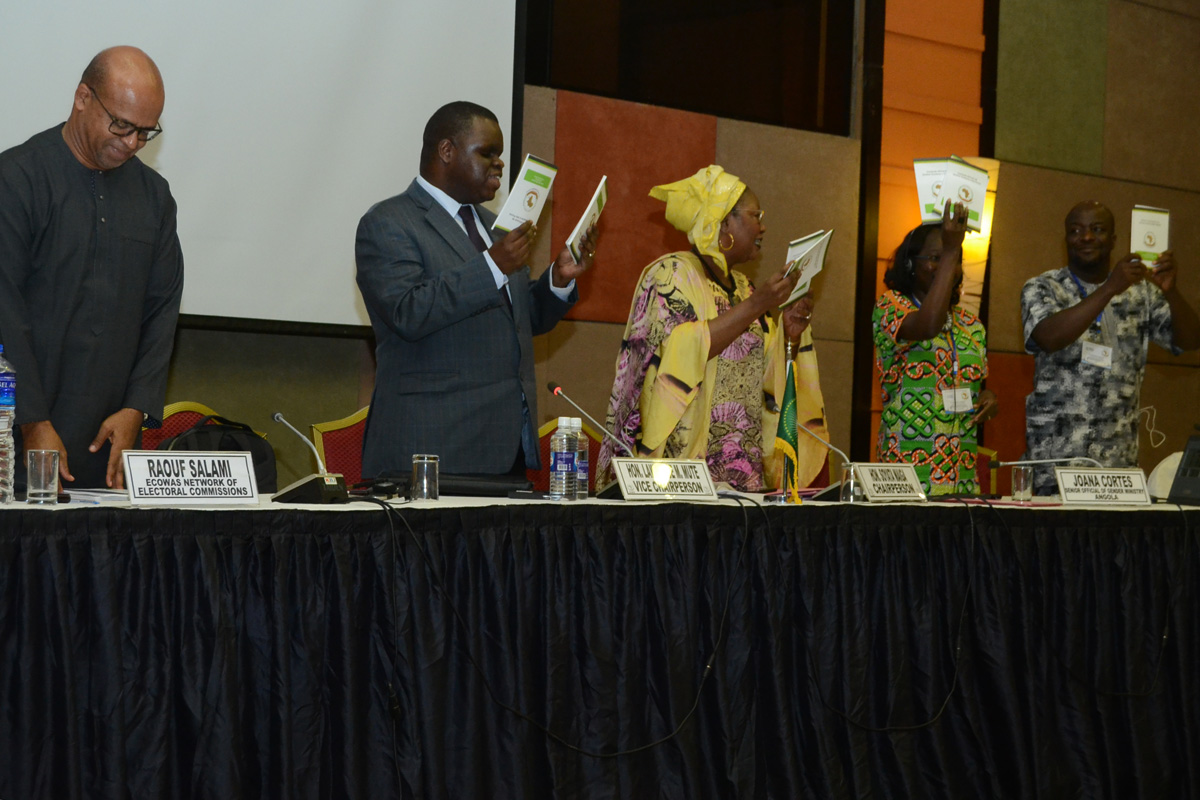The Centre for Human Rights (the Centre) organised a panel discussion on access to information and elections in Africa during the African Commission on Human and Peoples’ Rights’ (African Commission) 63rd Ordinary Session in Banjul, The Gambia. The panel discussion was held on 28 October 2018, and was moderated by the Special Rapporteur on Freedom of Expression and Access to Information in Africa, Commissioner Lawrence Mute. The panel consisted of Maxwell Kadiri, of the Open Society Justice Initiative; Raouf Salami, of the ECOWAS Network of Electoral Commissions (ECONEC) and Joana Cortes, a senior official of the Gender Ministry of Angola. The discussion was aimed at popularizing and facilitating dialogue on the Guidelines on Access to Information and Elections in Africa (the Guidelines), which the African Commission adopted during the 61st Ordinary Session in November 2017.
The implementation of the Guidelines would enhance transparency and integrity in the conduct of elections in Africa. As elections in the continent are increasingly multi-party and democratic, there are immense transparency and credibility challenges and a perturbing trend of election irregularities resulting in election results being vehemently disputed, has emerged. Secrecy and lack of proactive disclosure of election-related information has been at the core of this predicament. Thus, it has become imperative to focus electoral discussions on the role of access to information so that the right to vote can be meaningfully exercised.
The discussion underscored the principle of proactive disclosure of election-related information as set out in the Guidelines. Essentially, all information held by relevant electoral stakeholders such as appointing authorities, Election Management Bodies (EMB), political parties, election observers and monitors, law enforcement agencies, media regulatory bodies and civil society organisations, is subject to full disclosure. Other issues that emerged during the discussion are the uniqueness of access to information as a utility right, that enables the realization of various other rights and the importance record keeping or information management. Challenges associated with failure to disclose clear and accurate information and the need to create a balance between privacy, data protection and the right of access of information were also discussed.
Access to electoral information enhances transparency and public confidence in the electoral process and member states should therefore, adopt measures that promote access to information, to enhance citizens’ participation. Popularization of the Guidelines is part of the Centre’s advocacy campaign on access to information and elections. In this regard, the Centre continues to partner with the Special Rapporteur and other stakeholders in advocating for electoral transparency through advocacy and capacity building programmes. The Portuguese and Arabic versions of the Guidelines were launched during the discussion.


